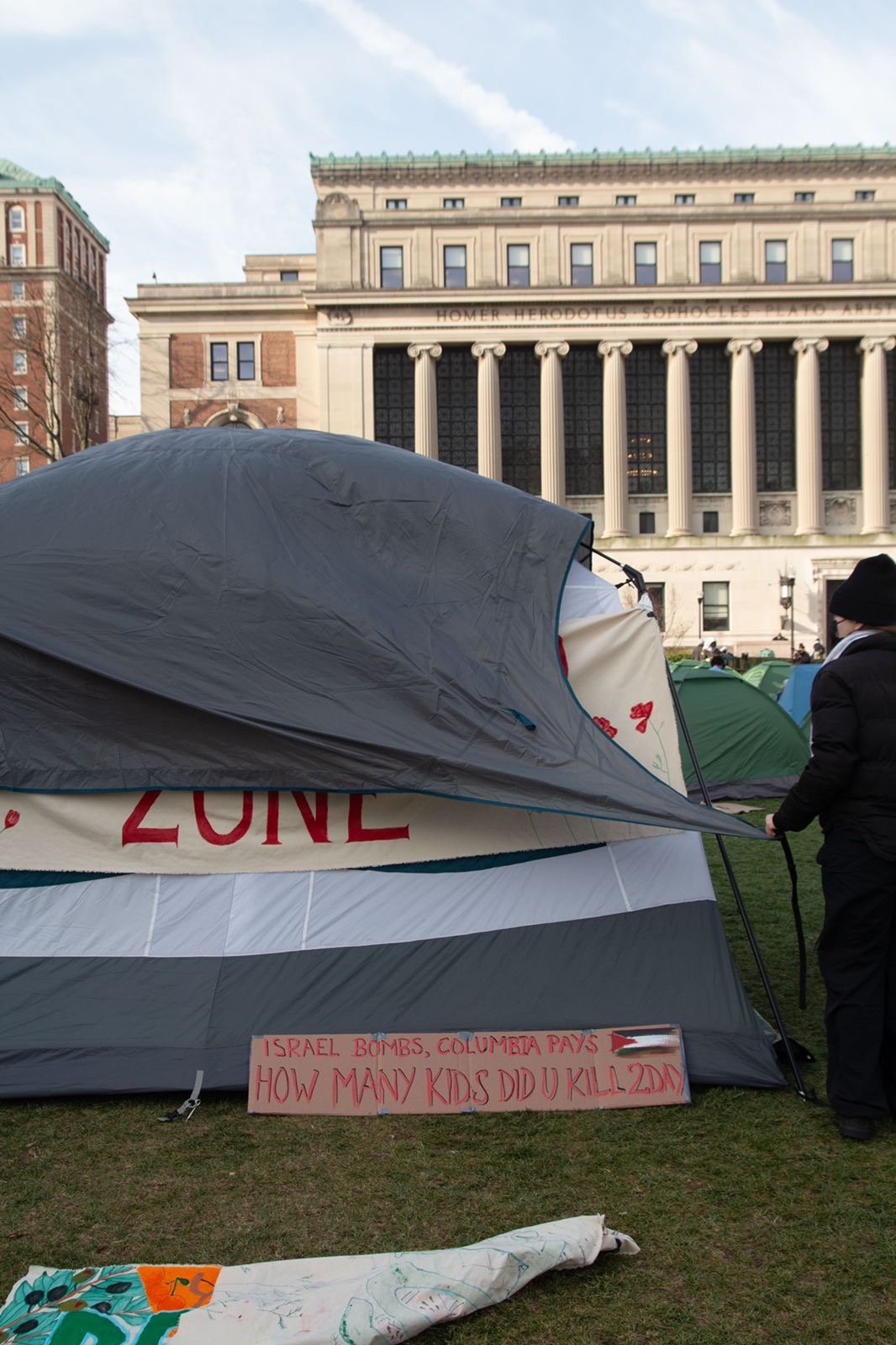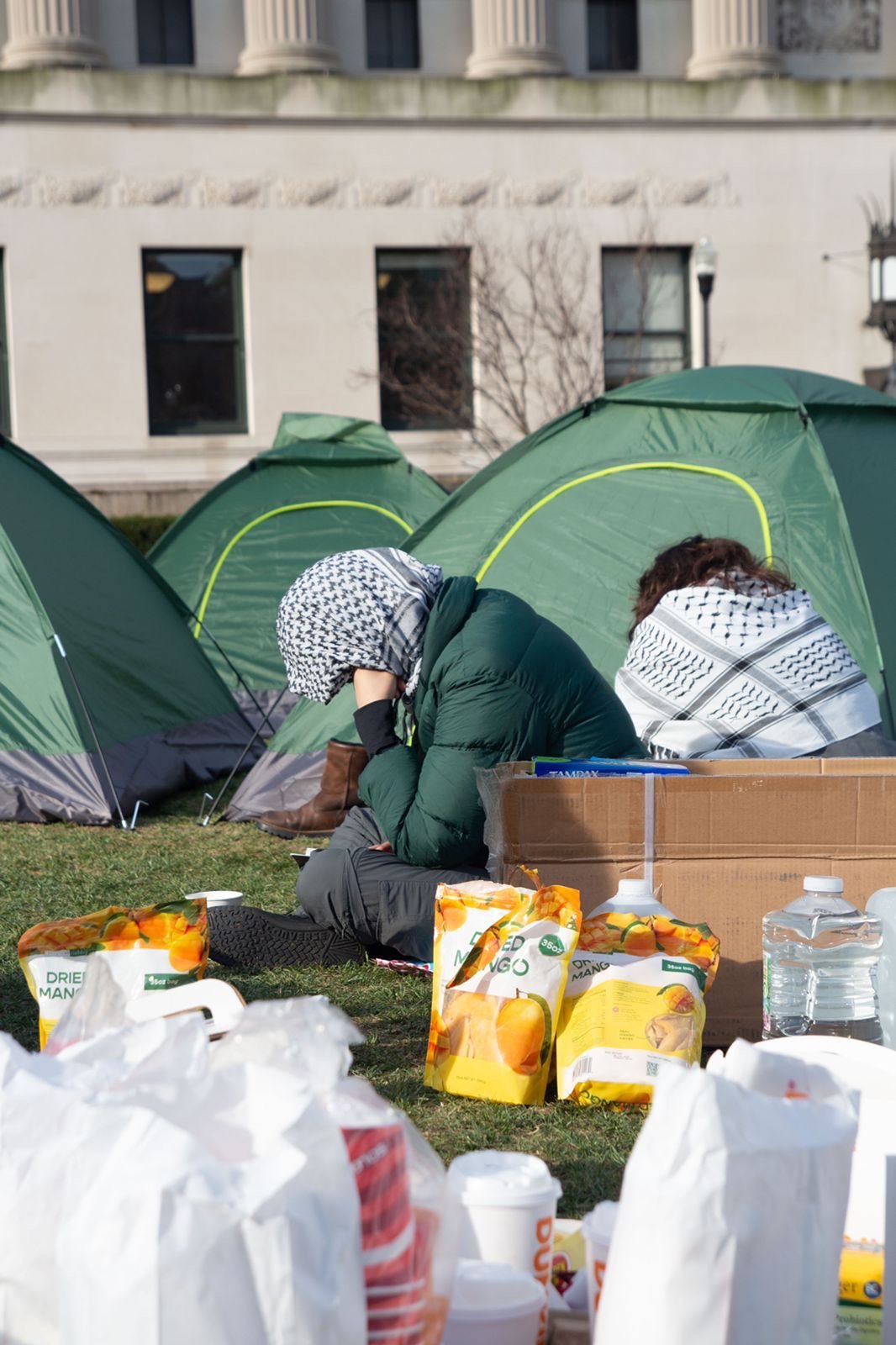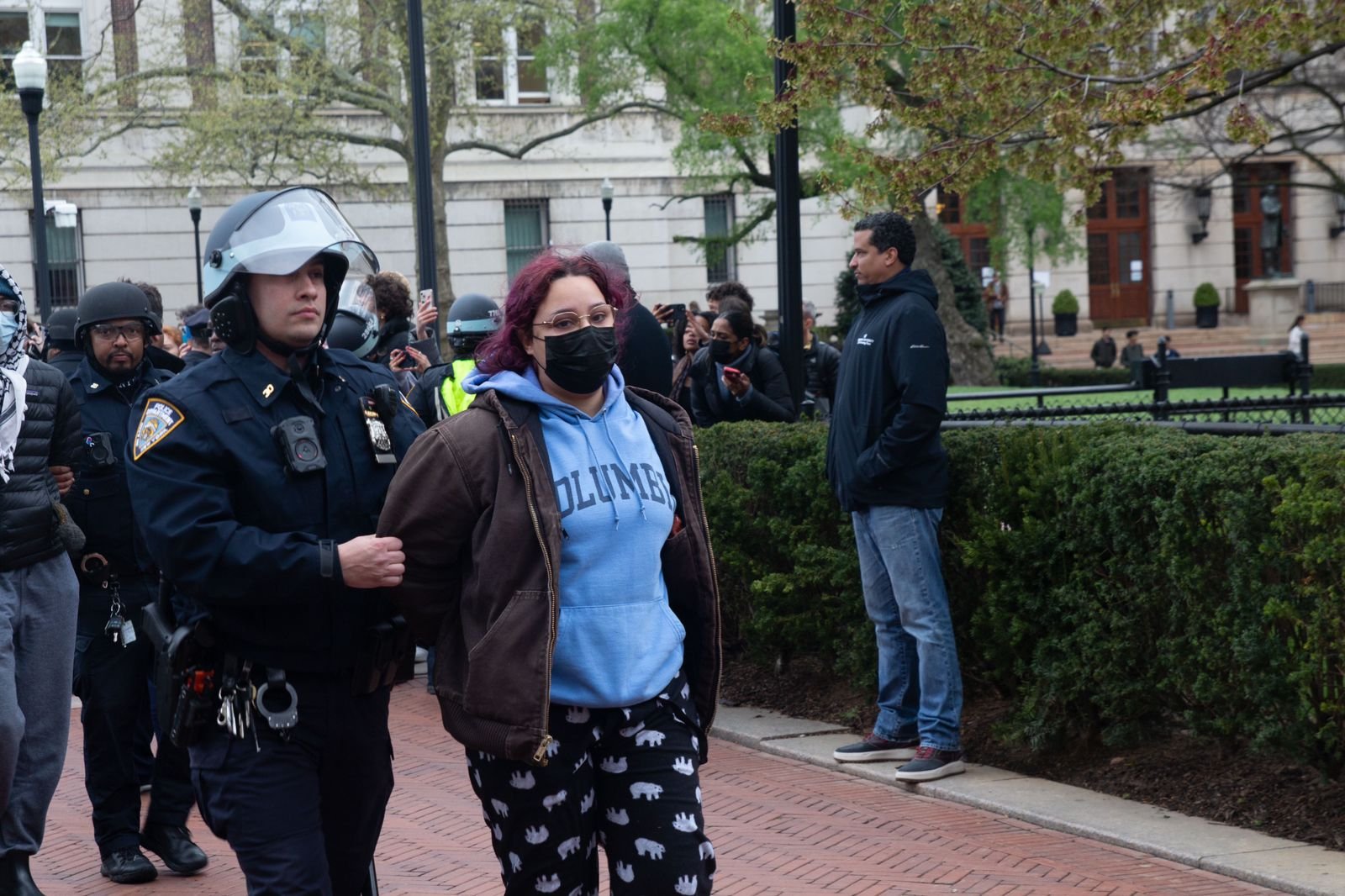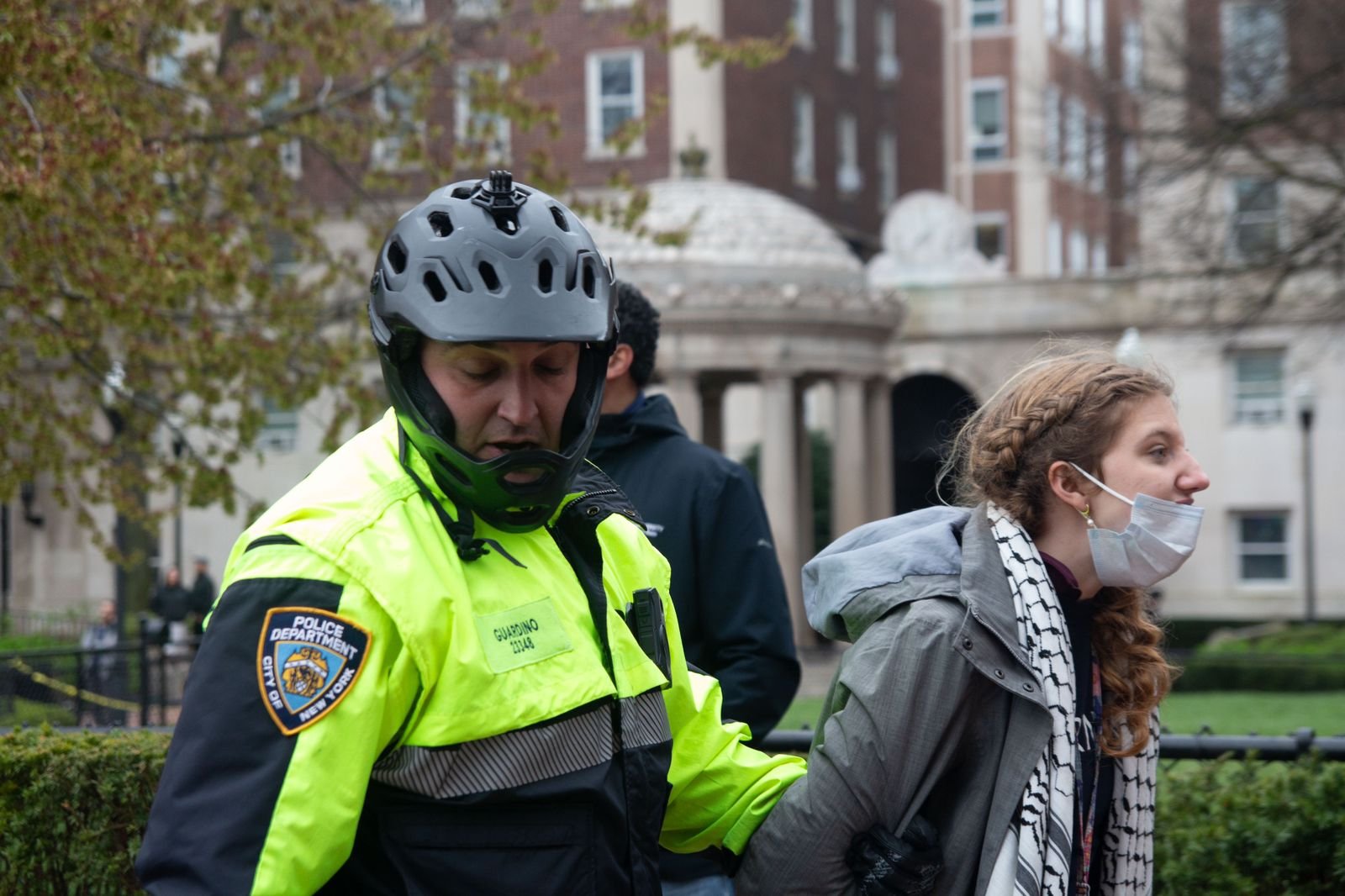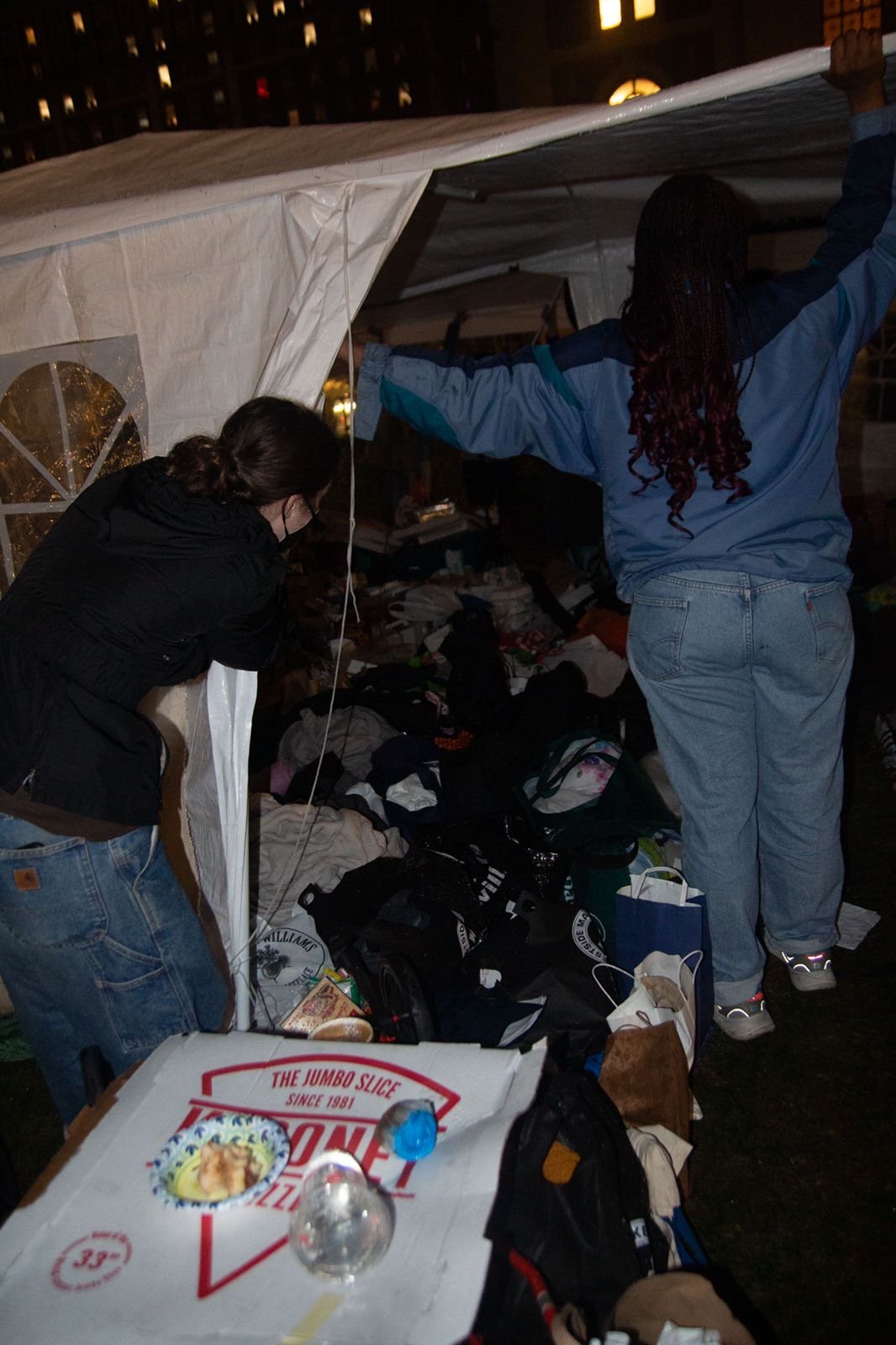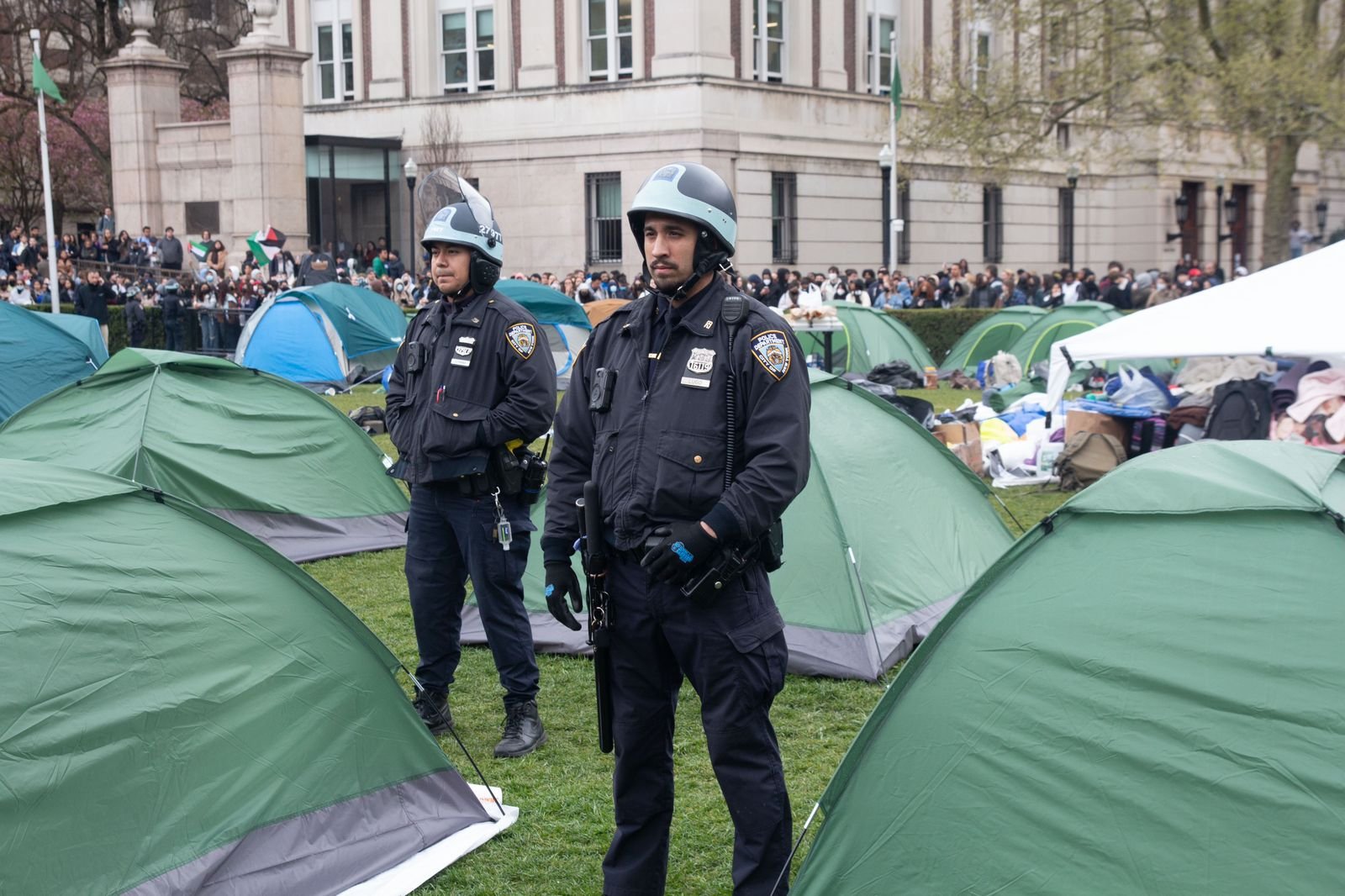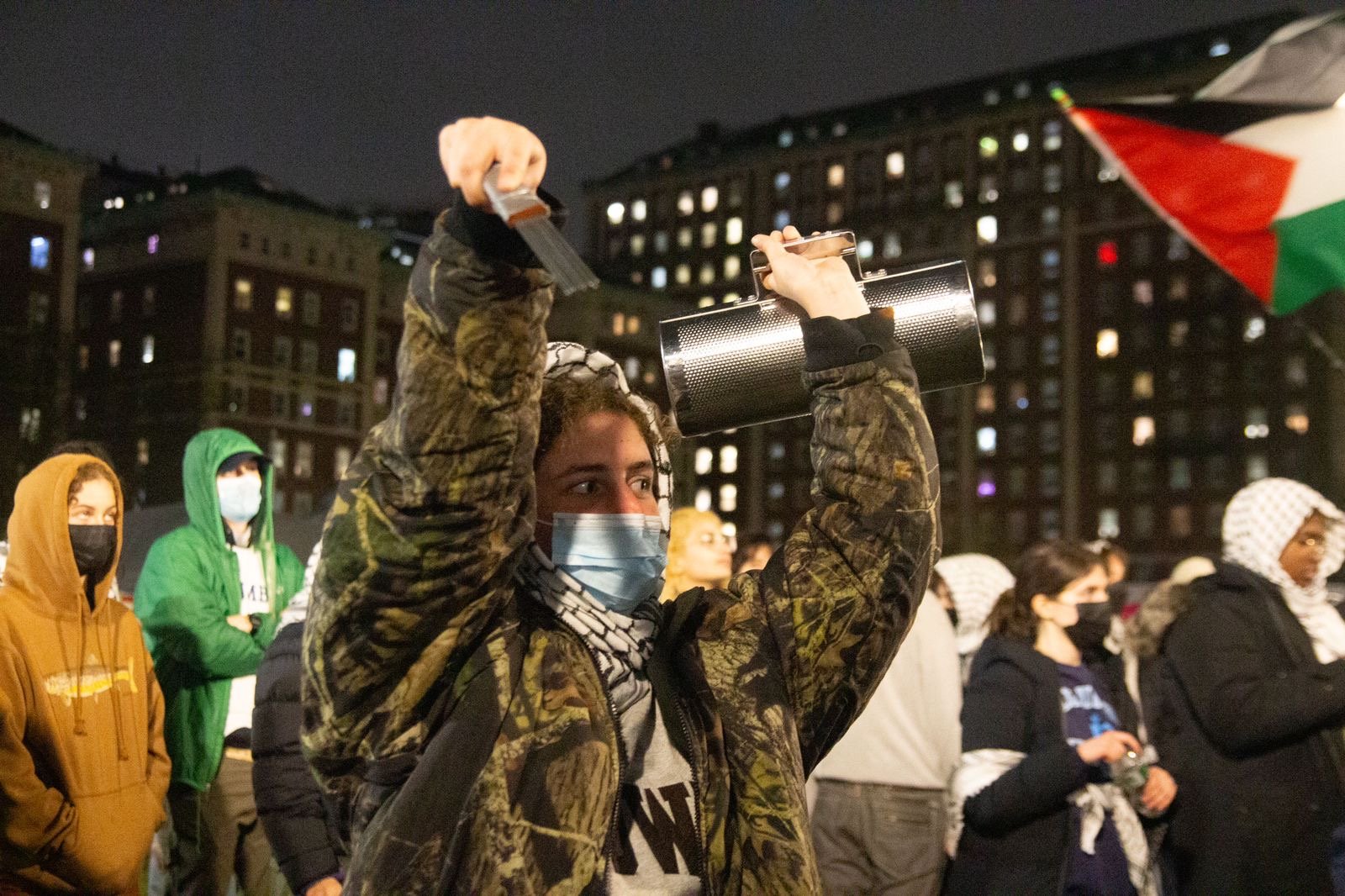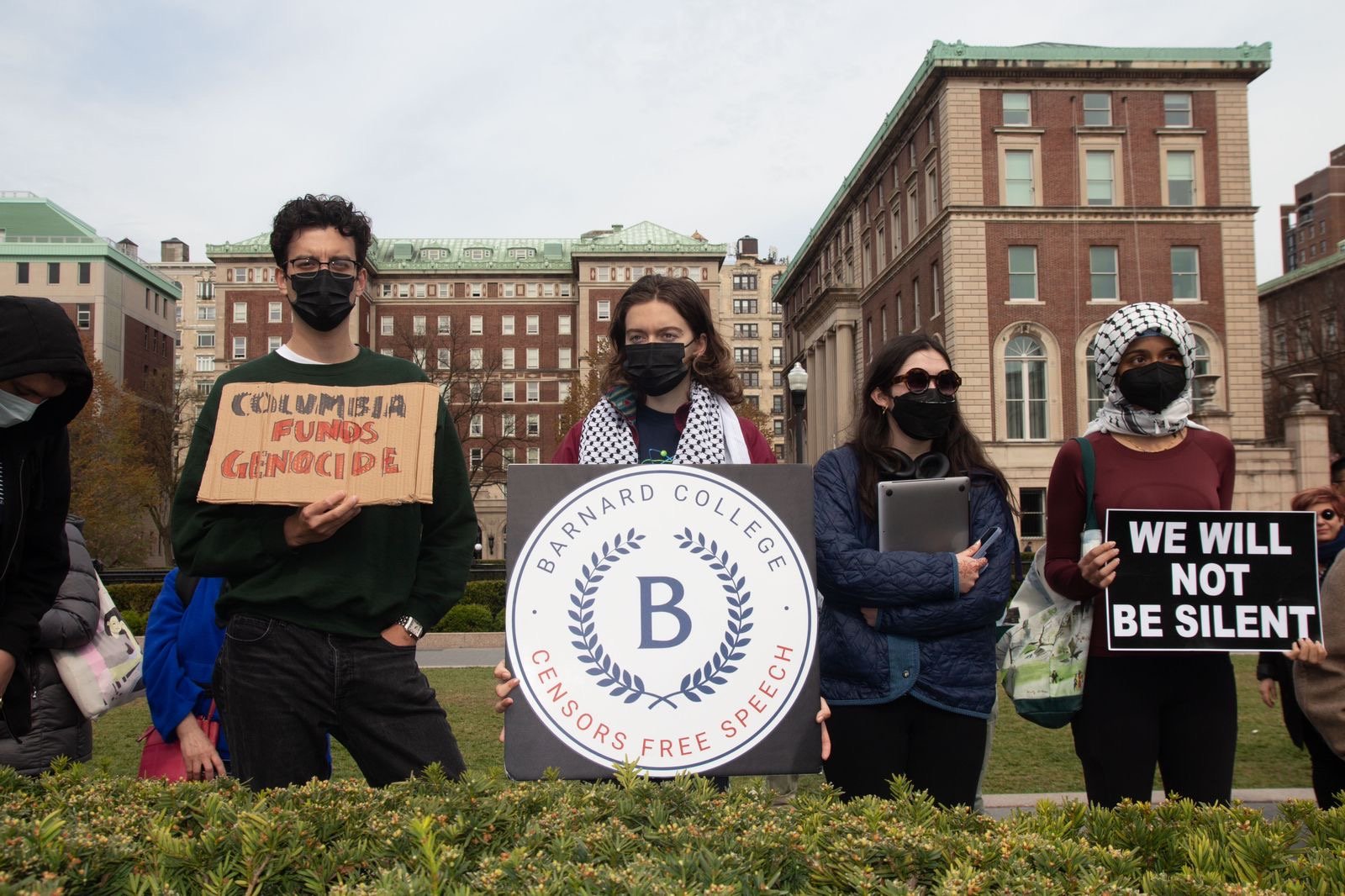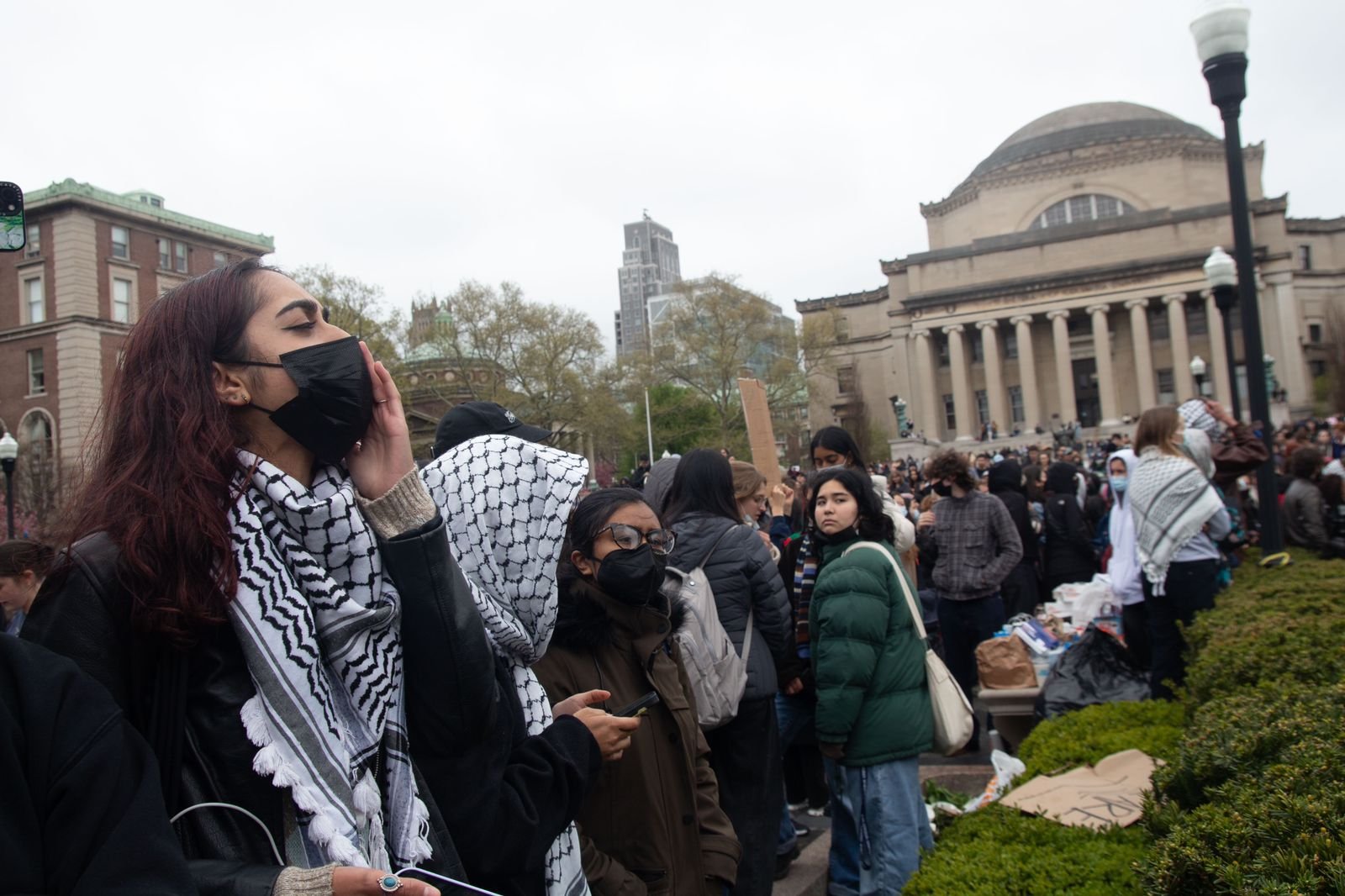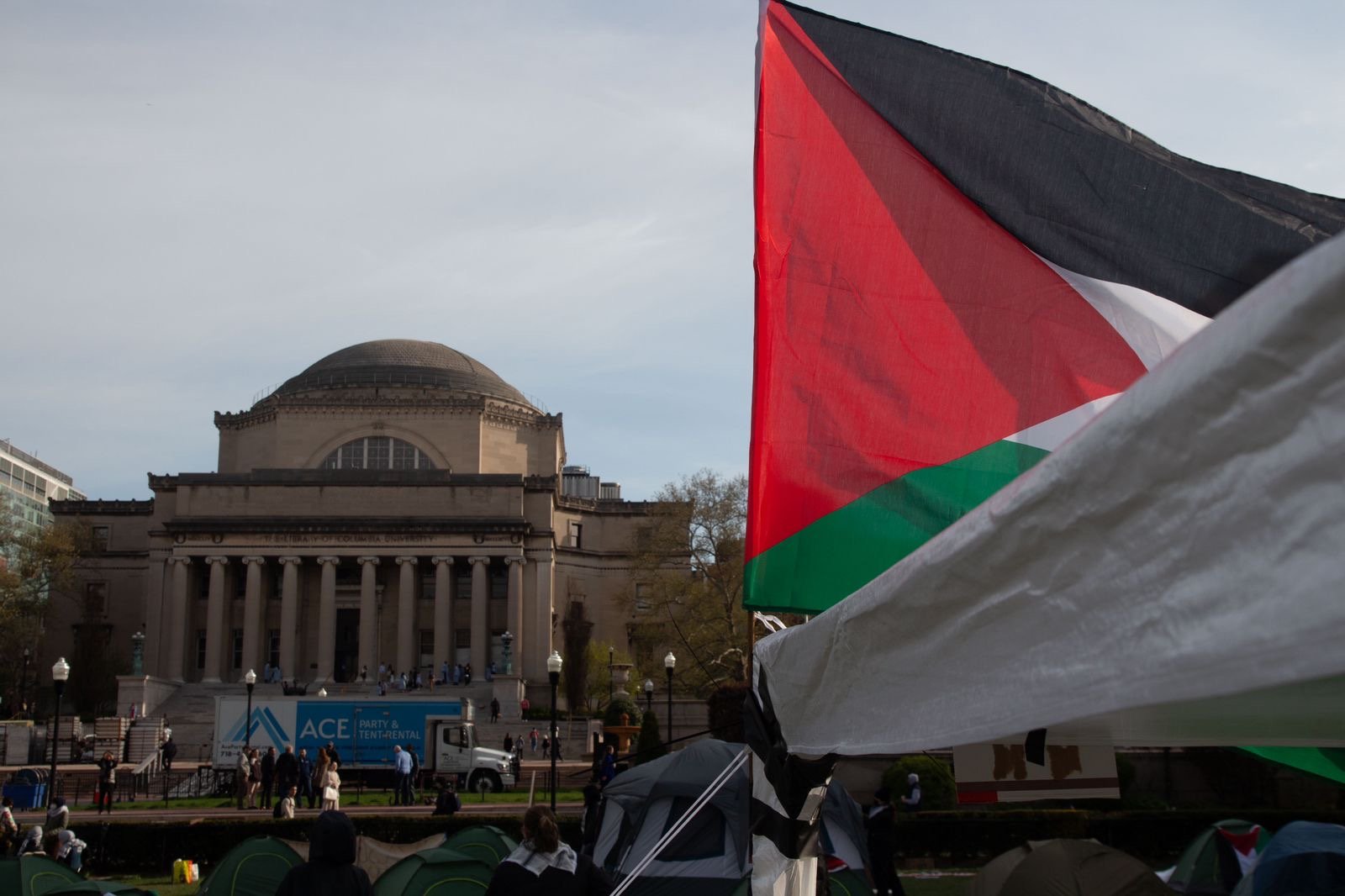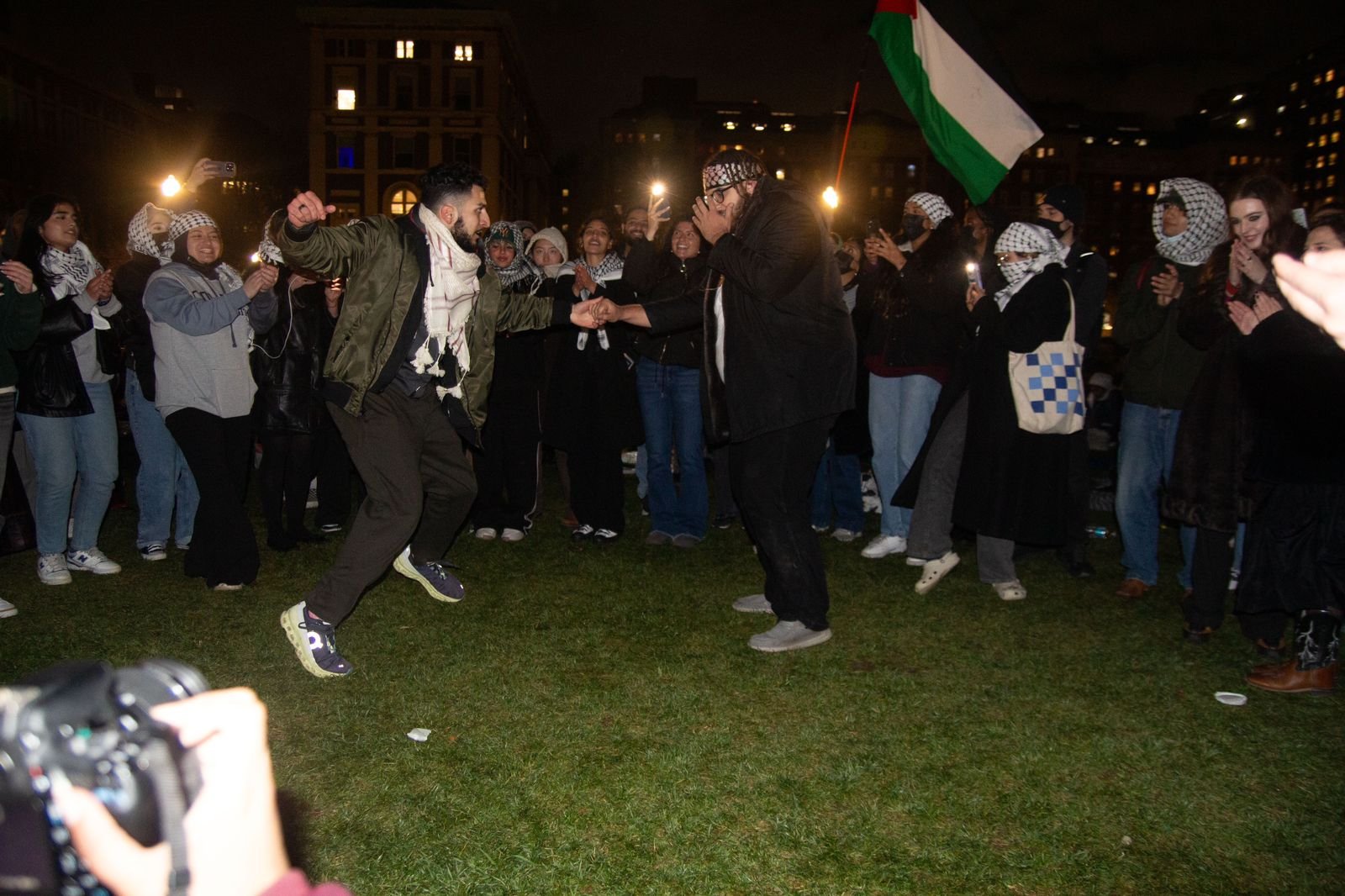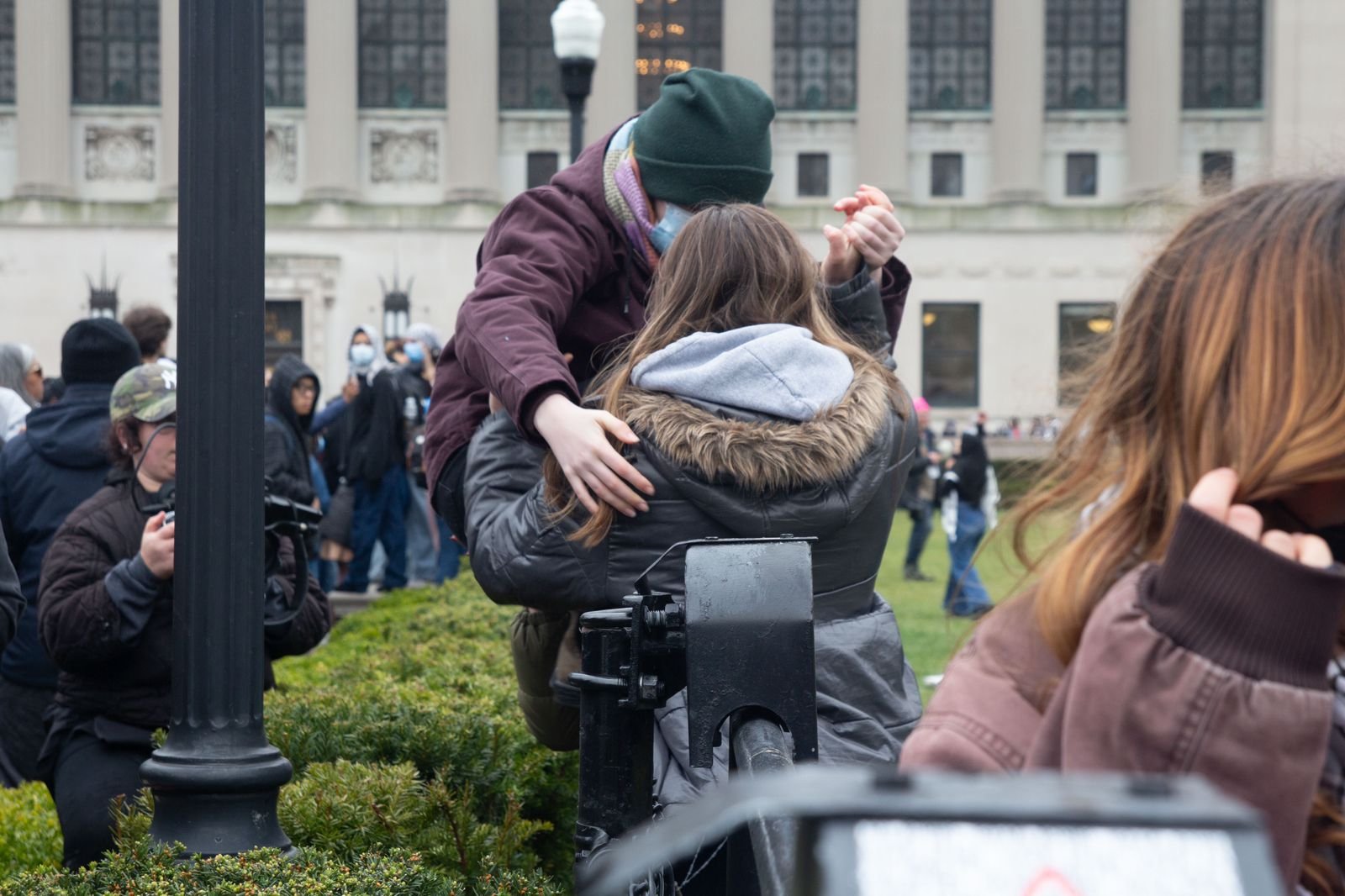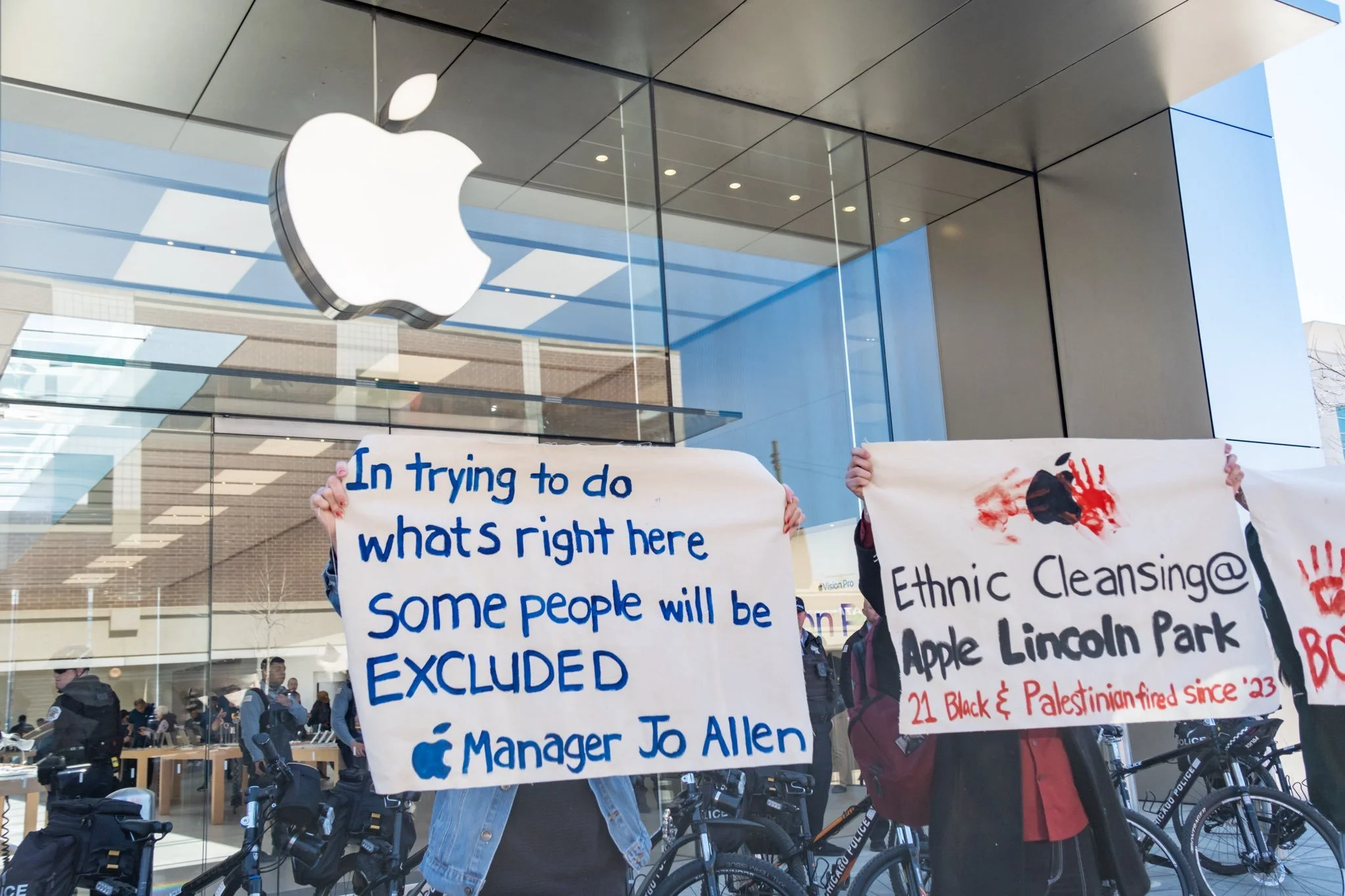Columbia Students Continue to Rally in "Gaza Solidarity Encampment," for Third Day in a Row
Student Solidarity Continues Despite NYPD Arresting More Than 100 People
NEW YORK CITY — On Thursday, April 18, Columbia University President Minouche Shafik authorized the NYPD to arrest students participating in the "Gaza Solidarity Encampment" on the university's South Lawn around 1:30pm.
Prior to the arrests, an organizer with Students for Justice in Palestine (SJP) at Columbia declared in a speech on the campus Sun Dial, "It would be an honor for me to be suspended for Palestine, to be arrested for Palestine. The only way I will leave is if they carry me out."
Over 100 people were subsequently arrested by the NYPD, while students picketed to tried to block police entry to the encampment.
The encampment, set up on Wednesday, April 17, at 4am by pro-Palestinian student activists at Columbia University's Morningside campus in New York City, had three clear demands: transparency from the university regarding financial investments, full divestment from Israel, and amnesty for the participating activists and supporters.
Inspired by the 1968 Columbia student activists who occupied Hamilton Hall, the encampment received strong support. Despite the presence of NYPD vehicles and personnel outside the campus, no arrests were made on the first day within the campus. However, some arrests were made of external supporters of the encampment.
Throughout the day, chants such as "Disclose, divest, we will not stop, we will not rest," and pro-Palestinian slogans echoed from the South Lawn. Solidarity was evident as supporters provided snacks, blankets, hand warmers, umbrellas, coffee, and water to the participants.
Following the arrests, students regrouped on an adjacent lawn, initially forming a spiral circle and continuing their chants for Palestine. The program resumed with statements from guests, including scholar Cornel West, Mohammad El Kurd, and organizers from the Palestine Youth Movement, to name a few.
Campus and Public Safety requested the removal of tents while the encampment was being moved, and organizers complied, but the encampment was re-established with students persisting in their chants, listening to speakers, and spending the night on the lawn with blankets, sleeping bags, and under the open air.
